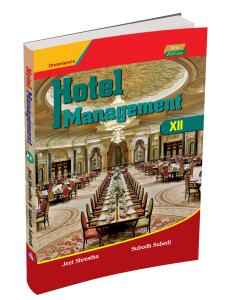Pioneer Mathematics – XI

Pioneer Mathematics – XI
Price: RS. 774
Author:
Subject: Pioneer Mathematics
Grade: 11
Published Year: 2020
ISBN: 978–9937–600–91–0
Version: English
- Description
- Syallabus
Preface
According to La Rochefoucauld “However brilliant an action it should not be estimated great unless the result of a great motive”.
Mathematics is more than a subject it’s an art. We encounter mathematics in every part of our lives. So, it is a must to have at least basic knowledge in mathematics. In preparing this book we have worked hard to capture every aspect of mathematics, its style and strengths which are friendly to contemporary students. This book is mainly designed for the students of grade XI, according to the curriculum designed by Curriculum Development Centre (CDC) and approved by Nepal Government.
We have come with the modern approach in solving the problem of mathematics step by step. This book mainly focuses on understanding, communicating and manipulating of mathematical ideas. It helps students to acquire mathematical maturity to apply to master the problems and for their applications.
After completing the study of this book, students would able to approach mathematics in more academic and practical way. We hope that the students will be able to generate their own skills, concepts and ideas on solving the problems rather than being a dependent only on teachers.
We have approached some new and fresh ideas to make the book not only useful but also equally interesting. We hope this book will be intelligible to the aspiring students.
If you go through this book you will find some ideas that you understand immediately, others you don’t understand until you read several times and some that you don’t understand even after multiple reading. Don’t get discouraged as some ideas take time to percolate, however, you may well find that the idea suddenly becomes clear later even you have least expected.
If you find that your answer to an exercise doesn’t match to the answer key, do not immediately presume that your answer is incorrect as there may be more than one way to express the answer. If your answer doesn’t match in the text then your best first step is to look for an algebraic manipulation or trigonometric identities that may result in relating the two answers in a precise way.
– The Authors
Some Tips to Learn Mathematics
According to George Cantor “The art of asking the right questions in mathematics is more important than the art of solving them”.
As educators and authors in mathematics, we have always striven to share with our students the sense of joy and enthusiasm as we experience in thinking about and doing mathematics. Collating, organizing and describing the concepts of high school students or beginning college level students is likely to encounter in a typical mathematics curriculum. We have enjoyed the opportunity to convey through writing of this text. Hopefully a continued sense of joy and delight in what mathematics can offer.
Moreover, mathematics endures from the ingrained perception that primary and secondary education of the subjects should consist almost exclusively of acquisition of set of skills that will prove to be useful to students in their days to come. With the push for standardized testing in the public school systems, this mindset is only reinforced and we personally fear that the joy of deep understanding the subject and the sense of play with the ideas it contains is diminishing by exploring fundamental questions that challenge basic assumptions. Students encouraged to think this way have to be improvised to be adaptable not only to understand and apply principles of a concept to the topic at hand but also to apply those foundations and habit of mind to new situations that may arise.
Learning ‘MATHEMATICS’ is not the same as learning other subjects because ‘MATHEMATICS’ involves techniques and skills with greater precision and deeper level. ‘MATHEMATICS’ introduces so many concepts and computational operations in fact that you will be no longer able to learn in class. So keep the following points in your mind while studying ‘MATHEMATICS’.
1. Read every text thoroughly. Otherwise, you will not be able to learn all the meanings and connections you need just by attempting the exercises. You need to read relevant passages in the book and do work through examples step by step.
2. Speed reading will not work here. You need to read and search for details in a step by step manner with logical fashion.
3. Do the homework keeping the following principles in mind:
a. sketch the diagrams whatever and wherever possible;
b. do your exercise step by step in a logical fashion;
c. think why many exercises are there? Why is it assigned? How is it related to other assigned exercises?
4. Complete as many exercises as you can even if they are not assigned in your curriculum.
5. Write short descriptions on your own of the key points when completing the text of the section. You will then clearly understand what supposed to be understood in your exercises.
Thus, learning mathematics is a process of getting new ideas. It doesn’t come all at once. Be patient, persevere, ask questions, discuss ideas and work with classmates and seek help when needed. We hope that this text in some small ways offer a sense of the creative aspects to mathematical thinking and it indeed gently encourages the reader to think deeply about the concepts even it is familiar ones.





